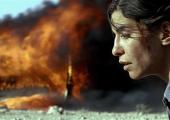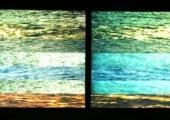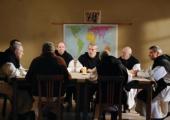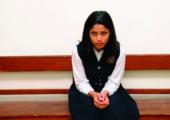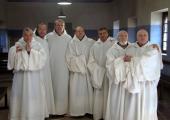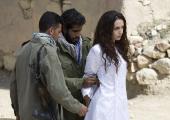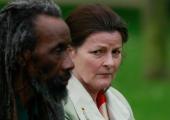The Jameel Prize, Victoria & Albert Museum
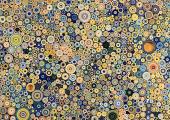
Biennial award for art inspired by an Islamic aesthetic
Hadie Shafdie, Iranian-born and now living in America, uses phrases and words taken from mystical Sufi poetry, incantations of sequences of the names of the divine. She handwrites and prints the devotions, usually spoken or chanted, on thousands of tiny scrolls in a broad spectrum of beguiling colours. The paper is rolled into circles of varying sizes, with the Farsi script almost entirely hidden, and tightly packed into wall-hanging glazed wooden vitrines. The resulting two pieces – 22500 Pages and 26000 Pages, both created this year - are captivating, echoing in stasis the physical act of ecstatic recitation, expressing something of Sufism, the mystical and esoteric forms of Muslim worship. No whirling dervishes here, although they too are Sufi.

